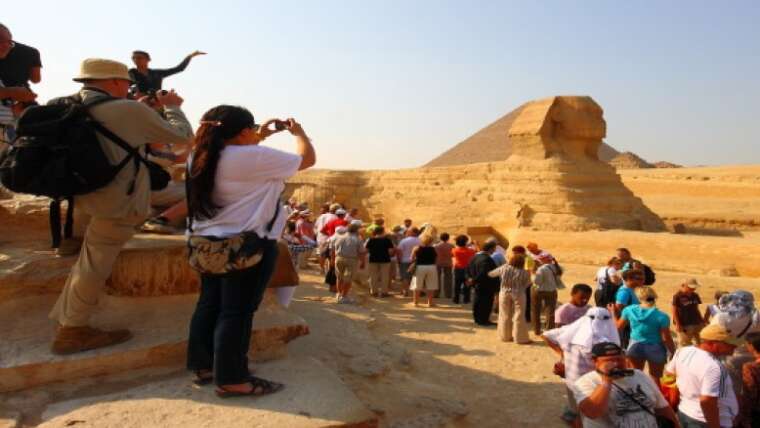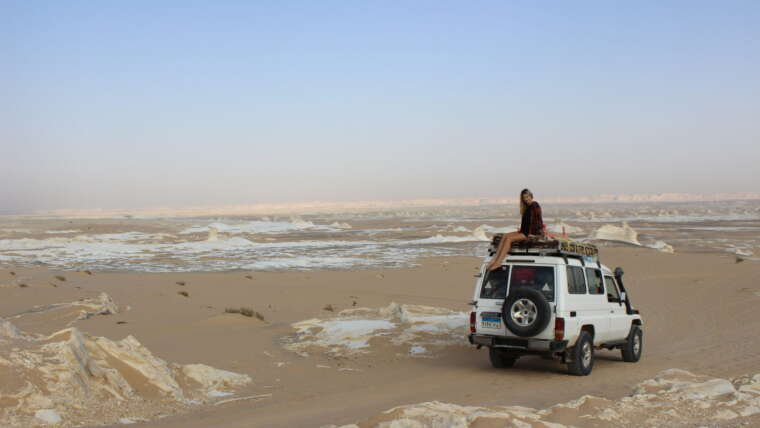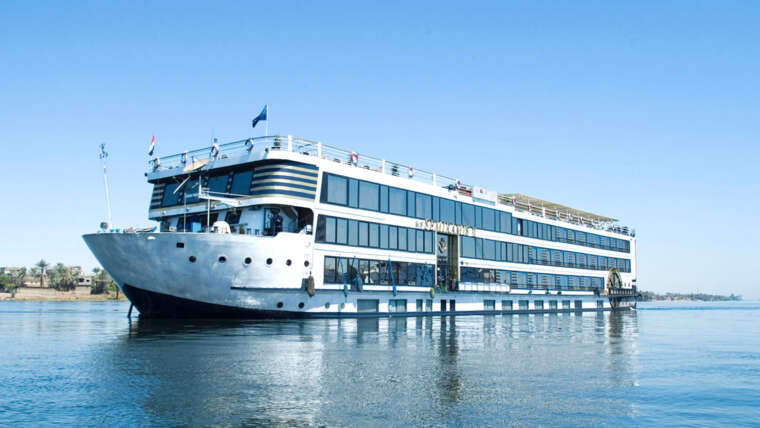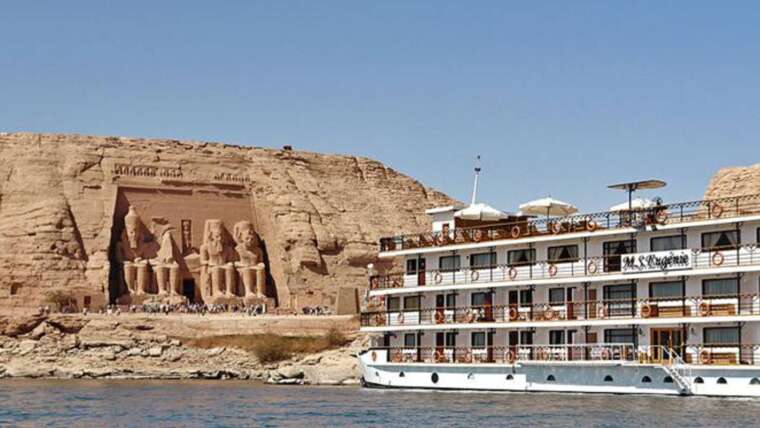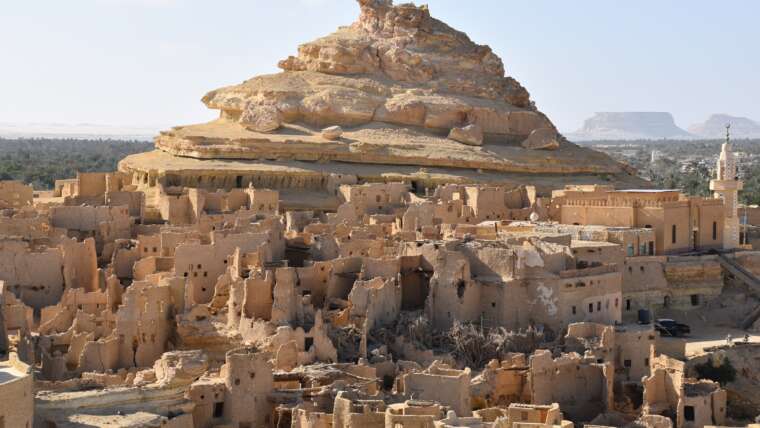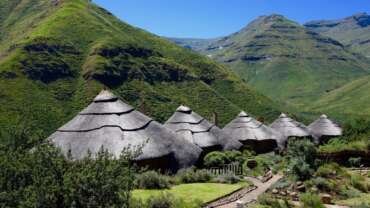Egypt - Everyday is a journey and your journey starts here
Treat yourself to Egypt Adventure packages. Whether you’re looking for a Adventure package to relax and indulge, special holidays in Egypt with friends and family, a trip to your favourite chill-out spot or a new adventure, you’ve come to the right place. Relive your life again and add a little spice to it with exciting Egypt holidays.
Discover Egypt tourism, travel to Egypt Weekend Getaways and its various tourist attractions with Egypt tour packages. Explore exciting Egypt Adventure packages with luxury Egypt vacation packages. Adventure Sense offers great deals and discounts on various vacation packages.
The sandy bridge connecting Africa and the Middle East, a sweeping landscape cut by the legendary River Nile and littered with ancient treasures and iconic monuments, and cradle of one of human history’s most enduring chapters—few destinations stir as much intrigue in the heart of the adventurous traveller as Egypt.
Join us as we head into the Valley of the Kings to see the rock-cut tombs and temples of the Pharaohs, and marvel at the Great Pyramids and Sphinx of Giza—rightfully ranked among the world’s most astounding archaeological wonders.
Explore the museums and monuments of Cairo and Alexandria or take an unforgettable cruise down the Nile as it twists through some of the country’s most remarkable landscapes.
Take a look through our itineraries and start planning your Egyptian adventure of a lifetime!
History of Egypt
Ancient Egypt grips the imagination, touches the soul and inspires the uninspired. You simply can’t escape over 7000 years of historical influence Ancient Egypt enjoys.
The legacy of Ancient Egypt, with names like Ramses, Nefertiti and Tutankhamen and places like the Great Pyramids of Giza and the Sphinx echoes in art, literature and popular culture.
When Alexander the Great conquered Egypt, Ancient Egyptian priests proclaimed him pharaoh after the oracle of Siwa declared Alexander to be a descendant of Amun, the chief deity of Ancient Egypt.
Ptolemy I, one of Alexander’s generals, succeeded Alexander as pharaoh and established the Ptolemaic dynasty.
Cleopatra, a direct descendant of Ptolemy I, was the last Greek ruler of Egypt.
During a Roman civil war, Augustus put an end to centuries of Ptolemaic rule when Cleopatra sided with Marc Anthony against Augustus. After winning the war, Augustus made Egypt a province of Rome. Respecting the tradition of the house of Ptolemy, the Caesars of Rome continued to honour Ancient Egyptian religion.
The continuous homage offered by Greek and Roman rulers to the local traditions of Ancient Egypt is the essence of Greco Roman culture in Egypt. Greco Roman art, architecture and ruins attest to the importance of Egypt in their regard. After the collapse of the Roman Empire, Greco Roman Egypt became a part of the Byzantine Empire until the Arab Muslim conquest.
Travel to Egypt to see breathtaking temples, fascinating mummies and stunning artwork. Ancient Egypt is truly a cradle of civilization.
People of Egypt
A democratic republic of blended ethnicities, Egypt is divided into 26 governorates consisting of towns, cities and villages. Currently, Egypt is home to some 90 million Egyptians that are (almost) equally split between urban and rural-dwelling citizens, concentrated near the banks of the Nile in the major cities of Cairo, Luxor, Aswan and Port Said. A very provincial people, Egyptians have always had deep-rooted ties to their places of origin, so much so that even those who live abroad always return to the exact same town they had previously built a life in. It’s almost as if moving elsewhere is not an option. From this emerges the unparalleled warmth and intangible ‘closeness’ that exists between the people of this country, even in times of distress. A truly, unforgettably welcoming people.
Although, as descendants of one of the world’s oldest civilizations, Egypt has influenced and been influenced by thousands of years of civilization. A large and unfortunate part of this past constituted of many conflicts, ranging from Pharaonic rule and Roman invasions to colonialism and war. This has been reflected in the country’s cultural diversity, with foreign languages such as English, French, German, Italian, and Spanish being widely spoken amongst different circles in society. This applies to just about all other facets of life, where everything from cuisine to art to literature exist as an amalgam of diversity, a residual of foreign lands. This has allowed society to cater to a wide spectrum of individuals regardless of class, from the religious man to the thrill-seeking ‘party animal.” The Egyptian people are continuously evolving, challenged by the opposing forces of tradition and modernization.
Consequently, having survived thousands of years as a key economic and political hub in the region, Egyptians themselves have become a fusion of the human race and view themselves differently as a result. Despite that Egypt’s minorities, consisting of Nubians, Bedouins, Turks, Greeks and several others, constitute less than 5% of Egypt’s population, the other 95% of Egyptians are themselves only 17% Arab, proven through sophisticated DNA analysis. In other words, Egypt is as much a part of the world as the world is of Egypt. Perhaps a subconscious driver behind the astonishingly unique culture Egyptians have constructed over the course of their history, Egyptians do not identify as Arabs, much like their DNA, but as something much more complex. As noted by British officers during the times of colonial rule, the very meaning of being Egyptian is so heavily entrenched within the very cores of the people that even upon being invaded by multiple countries, the Egyptian identity remained impressively intact; an identity that, in a way, lends itself to every corner of the globe.
Art & Culture of Egypt
Egyptian culture dates back thousands of years to the ancient Pharaohs and has been influenced by numerous invaders throughout history. Without a doubt, this colonialist footprint has blended with the country’s rich tradition to define Egyptian culture as we know it today.
Food-based gatherings are in fact one of the main social pillars of Egyptian culture with roundtable family feasts at its forefront. The local palette is geared heavily towards legumes and rice with onions, garlic and plenty of spices. There’s nothing quite like filling up on the delicious national cuisine, including foul, ta’miyah, and koshari, while basking in the hospitality of the locals, be it in the city or a Bedouin camp in Aswan. Take a stroll on the Corniche in Zamalek and stop by any of the numerous Nile cruise boats. Authentic oriental dishes are served against an unbeatable backdrop of dancing city lights and shimmering water, enriched by a gentle breeze. If you’re able to head north to Alexandria, then seafood is just what the doctor ordered. With the Mediterranean Sea just inches away, salt water fish and crustaceans are a dime a dozen. Select your fish and your favorite cooking style, and enjoy a seat by the window where you can watch small boats sail in and out of the marina while the sun sets in the distance on the Mediterranean.
Egypt is also well known for its captivating entertainment. Belly dancing, or oriental dancing as it’s formally known, is a longstanding part of Egyptian culture permeating all facets of life, from cabarets to the most extravagant weddings. These cultural performances extend to the Sufi whirling dervishes and the famous tanoura. Originally a means to gain higher spiritual awareness, this display of dazzling, brightly colored skirts spinning to the hypnotic pulse of the music is guaranteed to mesmerize. The Egyptian’s love of the performing arts even transcends into the world of live Arabic music concerts in the arching halls of the Cairo Opera House and the Sayed Dervish Theatre in Alexandria, where the beat of the tablah, or drum, reverberates into the depths of your bones.
In keeping with the oriental rhythm, Egyptians speak the official language, Arabic. While modern standard Arabic is used in television, government speeches, and educational institutions, Egyptian ‘colloquial’ Arabic is the common form that is universally understood, especially across the Middle East due to Egypt’s prominence in the film industry. Within Egyptian Arabic, a number of different vernaculars exist, still fairly discernable but with a twist. The Bedouin of Sinai have their own dialect that differs from those of the Western Desert. There are also minor linguistic groups, such as that of the Nubians, who speak Eastern Sudanic languages, and other minorities such as Greek and Armenian which have undoubtedly shrunk over time.
Much like the official language, Egyptians across the country share a very similar trait; their friendliness. Egyptians are a very warm, sociable people who are always ready to strike up a conversation. They will offer you directions or assistance whether or not you asked for it, and will go out of their way to take you where you need to be. If you’re invited over to an Egyptian’s house for anything ranging from snacks to a six-course meal, don’t expect to finish off your plate so easily as your generous hosts can refill faster than you can eat. If you truly want to experience Egypt, then you absolutely must mingle with the locals to learn the meaning of the expression “a home away from home”.
Egypt’s culture has so much to offer both locals and visitors who are looking to experience its charm. Whether you’re interested in its ancient history or simply looking for an adventure, this place, and its people, are sure to captivate your very existence.
"People to people” starts with “p”
A democratic republic of blended ethnicities, Egypt is divided into 26 governorates consisting of towns, cities and villages. Currently, Egypt is home to some 90 million Egyptians that are (almost) equally split between urban and rural-dwelling citizens, concentrated near the banks of the Nile in the major cities of Cairo, Luxor, Aswan and Port Said. A very provincial people, Egyptians have always had deep-rooted ties to their places of origin, so much so that even those who live abroad always return to the exact same town they had previously built a life in. It’s almost as if moving elsewhere is not an option. From this emerges the unparalleled warmth and intangible ‘closeness’ that exists between the people of this country, even in times of distress. A truly, unforgettably welcoming people.
Although, as descendants of one of the world’s oldest civilizations, Egypt has influenced and been influenced by thousands of years of civilization. A large and unfortunate part of this past constituted of many conflicts, ranging from Pharaonic rule and Roman invasions to colonialism and war. This has been reflected in the country’s cultural diversity, with foreign languages such as English, French, German, Italian, and Spanish being widely spoken amongst different circles in society. This applies to just about all other facets of life, where everything from cuisine to art to literature exist as an amalgam of diversity, a residual of foreign lands. This has allowed society to cater to a wide spectrum of individuals regardless of class, from the religious man to the thrill-seeking ‘party animal.” The Egyptian people are continuously evolving, challenged by the opposing forces of tradition and modernization.




